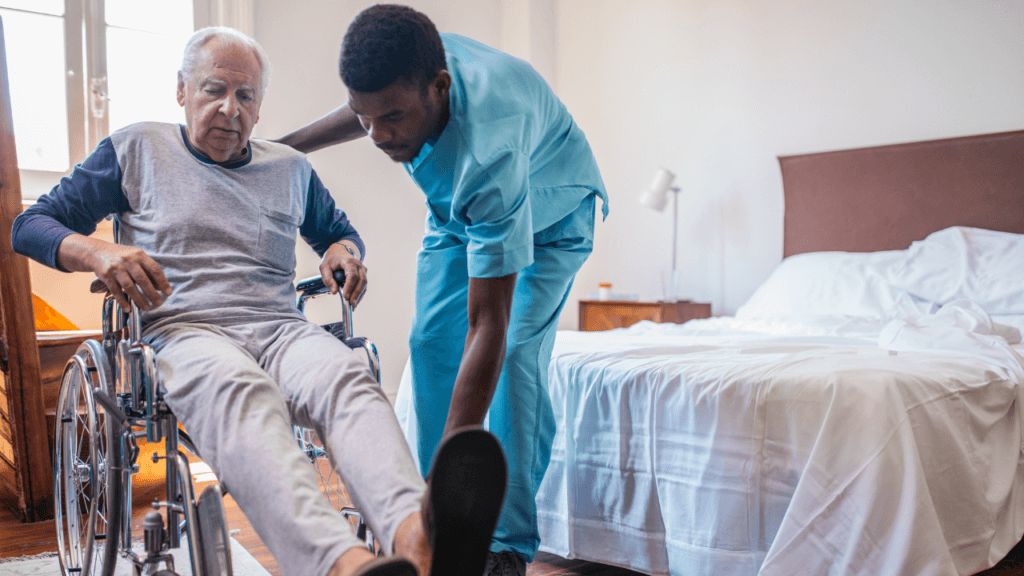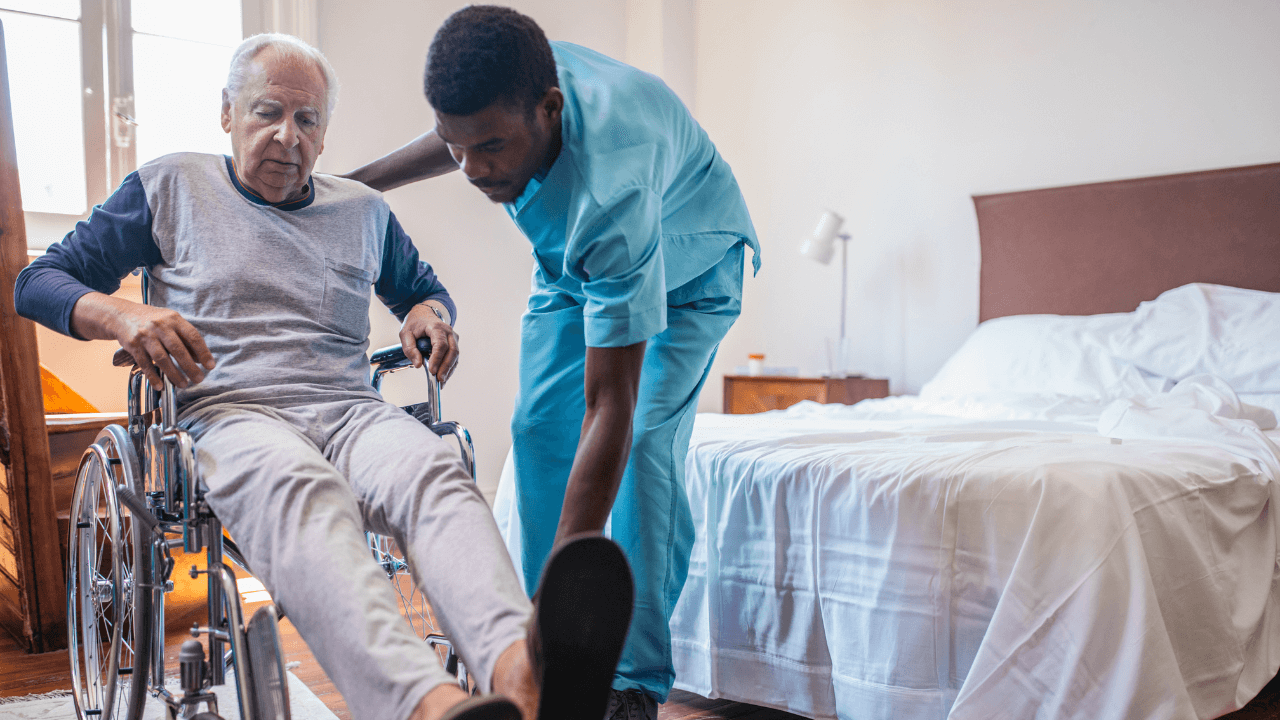Written By:
 Adam H. Rosenblum
Adam H. Rosenblum
Your Dedicated & Trusted Legal Team
3 Generations & 100+ Years of Combined Legal Experience

Making sure patients are properly taken care of is a priority for the healthcare industry. For this reason, understaffing in medical facilities is a problem that needs to be addressed in places like nursing homes, where the issue can lead to the abuse and neglect of residents. When someone enters a nursing home, that placement is done to meet a particular need. Perhaps the reason is a mental illness, old age, or an individual not being able to physically care for themselves or be left alone. Having sufficient staff will assure resident safety, as well as a high level of residents’ physical, psychological, and mental well-being.
When there is not enough staff to take care of all the patients throughout the day, patients may feel alone and neglected. Yet, families put their loved ones into these homes with the expectation that they will be taken care of by trained and experienced professionals all hours of the day, seven days a week. The hope is that they may also be able to build relationships with other residents. In reality, a recent survey found that 94% of nursing home providers felt they didn’t have enough staff within the last month, and 81% of assisted living communities reported a staff shortage.
Why Nursing Homes Are Understaffed
The staff at a nursing facility want to make patients feel comfortable in their environment. They are caring and dedicated. Unfortunately, they are not always respected for the work they do. Moreover, advancement opportunities are limited without further schooling or professional training programs, both of which typically cost money. At the same time, nursing home positions don’t pay very well. All of these factors lead to high turnover and burnout. So in most cases, nursing homes don’t choose to be understaffed, but the working conditions make it hard for them to find and retain qualified staff.
Signs of Understaffing
Understaffing can look different to different people. The main signs of understaffing are an increase in overtime, the staff-to-patient ratio, and staff turnover. For the pay they get, most employees do not want to do all the work that comes with the low pay. When a family goes to visit the nursing home to see their loved ones, the last thing they want to hear is that they never see their nurse or aren’t getting the care they require. That leads to formal and informal complaints, which are yet another sign of understaffing.
Medicare provides an online tool to help users find and compare nursing homes in their area. It uses a five-star rating system and includes information about each facility’s staffing and inspection reports.
Signs of Abuse and Neglect
Signs of abuse and neglect can be physical, psychological, sexual, or even financial in nature. Some signs of physical abuse would include:
- Noticeable injuries like broken bones or lacerations
- Frequent bruising
- Social withdrawal
- Being startled easily
These symptoms show that either a resident was injured by another and a staff member did not stop it, or the staff is responsible for it themselves.
Residents may isolate themselves out of fear due to non-consensual sexual encounters. Some signs of this form of abuse may include:
- Torn undergarments
- Changes in behavior
- Isolation
- Angry outbursts
Like physical abuse, sexual abuse may come at the hands of another resident and not staff. This is where understaffing issues come into play. If there aren’t enough employees to properly staff all areas for much of the day, abuses can be missed because they go unseen.
Understaffing can also lead to neglect, which is not intentional, but still puts nursing home residents at risk. Some signs of neglect include:
- Dehydration
- Old clothes or unclean linens
- Frequent infections
- Bed sores
- Unexplained weight loss
Impact Understaffing Has on Residents
Understaffing can have a significant impact on nursing home residents. For starters, abuse and neglect likely increase simply because the staff-to-resident ratio increases to a point where staff members can not properly assist and monitor all of their patients. When a member of the staffing team is not able to tend to a resident for many hours or even days, psychological problems, emotional distress, physical issues, and death may result.
What if You Suspect Nursing Home Abuse and Neglect?
If you suspect nursing home abuse and neglect, you should first seek to make sure your loved one is safe. If the danger is immediate, call 911 to immediately move them from the facility to a hospital for evaluation. If not, document everything. This may include noting observations of the resident’s condition and/or behavior or conversations with the staff. It’s also a good idea to take photos and video of any injuries or other evidence, such as living conditions or medications given to the resident.
Nursing homes often miss signs of neglect and abuse themselves. If this is the case, contact the manager of the nursing home to discuss your concerns. If the management doesn’t help, you can file a formal complaint with your state agency, and hire an attorney.
How Can an Attorney Help
If the staffing or other conditions of a nursing home make a family member’s physical, mental, or psychological health worse, it may be time to contact an attorney. Searching for a lawyer with experience handling such cases law will help you and your loved ones find a solution and perhaps entitle your loved one to compensation. Rosenblum Law has decades of experience helping clients who’ve suffered from abuse. Contact us online or call us at 888-512-3828 to schedule a free consultation today.

 Adam H. Rosenblum
Adam H. Rosenblum
About The Author
Adam is the founding attorney and principal of Rosenblum Law. With more than two decades of legal experience in numerous areas of law practice, his primary focus is law firm management and business development.
Read MoreLatest from Our Blog


Editorial Standards
Rosenblum Law is committed to delivering informative content of the highest quality. All content is subject to our rigorous editorial standards for relevance, accuracy, sourcing, and objectivity. Everything is fact-checked by an editor and reviewed for legal soundness by one of our practicing attorneys prior to being published.
How to Cite Rosenblum Law’s Article
APA
Adam H. Rosenblum (May 4, 2023). 10 Things to Consider When Choosing a Personal Injury Attorney. Rosenblum Law Firm, https://rosenblumlaw.com/10-things-to-consider-when-choosing-a-personal-injury-attorney/
MLA
Adam H. Rosenblum "10 Things to Consider When Choosing a Personal Injury Attorney". Rosenblum Law Firm, May 4, 2023. https://rosenblumlaw.com/10-things-to-consider-when-choosing-a-personal-injury-attorney/




